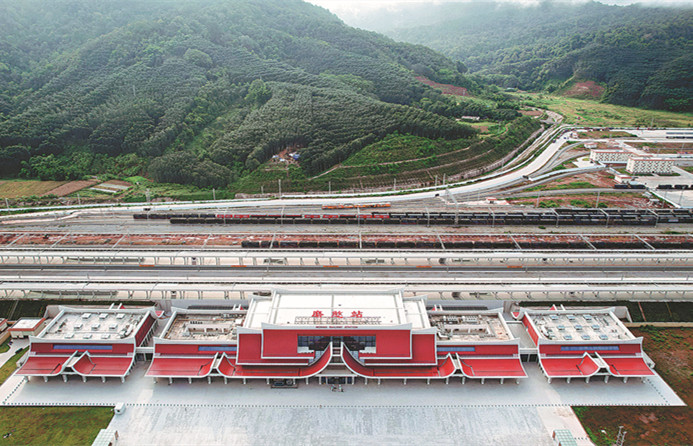
Mohan port in Yunnan province, which borders Laos, is the largest national first-class land port between China and Laos. It is also the most convenient channel for land cargo transportation among China, Laos, and Thailand, and a transfer hub for inbound and outbound tourism.
The China-Laos Mohan-Boten Economic Cooperation Zone is the second border economic cooperation zone jointly established by China and bordering countries, and enjoys obvious geographical advantages.
"Since the beginning of this year, the number of vehicles entering and exiting Mohan Port has doubled, increasing from 400 to 800 per day. Additionally, the average time for individuals to enter and exit the port has significantly improved, now ranging from 5 to 15 minutes," according the zone’s management committee.
In the first half of the year, the total volume of import and export trade in the port was 4.23 million tons, a year-on-year increase of 57.52 percent; by the end of May, the cooperation zone had actually utilized $20 million of foreign capital.
At present, the superimposed effect of preferential policies in the cooperation zone is about to come into play. "We have been actively inviting investment on a regular basis and constantly communicating with quality enterprises. We are looking forward to them joining. There is a long way to go to build Mohan into an international port city but we can see the great potential and bright promise,” said the person in charge of the management committee of the zone.
The new border market in Mohan covers a total area of 125.6 mu, 2.5 times larger than the original. It is designed to facilitate the customs clearance of 4 million tons of freight annually and 500 vehicles daily. It has four major functional areas including the declaration area, import and export goods trading area, inspection area, and quarantine and treatment area.
While achieving more efficient inspection and supervision functions, the declaration procedures have also become more convenient for border residents via a designated App launched by the government.
“Border market trade refers to the exchange of goods between border residents in China and their counterparts in neighboring countries. Such markets are usually opened within 20 kilometers of China’s land border with the approval of the provincial people's government. The traders are exempt from import duties and import value-added tax up to 8,000 yuan($1098.68) per person per day at particular trade points,” said the person in charge of the border market in Mohan. Products like fresh bananas, watermelons, edamame, and passion fruit are transported in large quantities and are welcomed, he added.